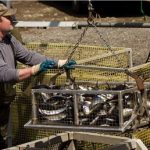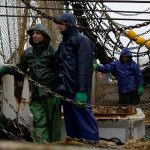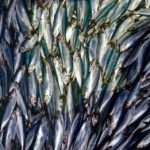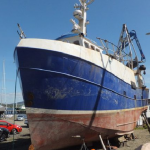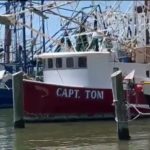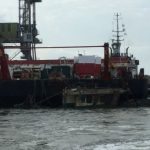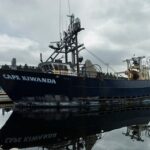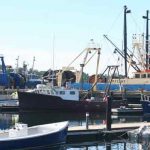Tag Archives: department-of-commerce
Department of Commerce Announces Changes to the 2017 Gulf of Mexico Red Snapper Private Angler Recreational Season
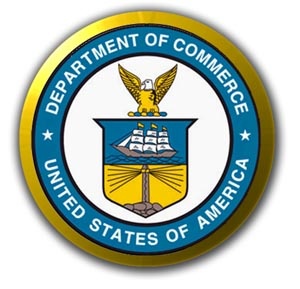 For the first time in a decade, Federal authorities and the five Gulf States have agreed to align Federal and State private angler red snapper fishing seasons for the remainder of the summer, and the Department of Commerce has re-opened the 2017 private angler recreational season for 39 weekend days and holidays. Majority Whip Scalise and other Members of Congress were instrumental in reaching this agreement. The agreement reached between the Secretary of Commerce and the five Gulf States is a significant step forward in building a new Federal-State partnership in managing the Gulf of Mexico red snapper stock.The Departments rule does not change the quota or season length for the federally permitted for-hire component of the recreational fishery or the commercial individual fishing quota program and the 2017 commercial quota. Click here to read the press release 18:13
For the first time in a decade, Federal authorities and the five Gulf States have agreed to align Federal and State private angler red snapper fishing seasons for the remainder of the summer, and the Department of Commerce has re-opened the 2017 private angler recreational season for 39 weekend days and holidays. Majority Whip Scalise and other Members of Congress were instrumental in reaching this agreement. The agreement reached between the Secretary of Commerce and the five Gulf States is a significant step forward in building a new Federal-State partnership in managing the Gulf of Mexico red snapper stock.The Departments rule does not change the quota or season length for the federally permitted for-hire component of the recreational fishery or the commercial individual fishing quota program and the 2017 commercial quota. Click here to read the press release 18:13
Snapper silliness still has anglers seeing red
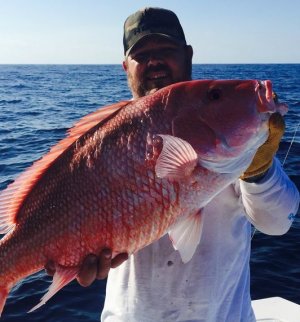 The bumper sticker on the white Ford pickup truck could not have been more clear: “National Marine Fisheries Service: Destroying Fishermen and Their Communities Since 1976!” Poignant. Harsh, even. But tame by today’s standards. The sticker made me think of an issue affecting offshore bottom fishermen who depart inlets between the Treasure Coast and South Carolina. I’m no mathematician, but something fishy is going on with red snapper statistics. Red snapper, a larger cousin of mutton snapper and mangrove snapper, resides in waters of the Gulf of Mexico and the Atlantic Ocean. It is presently off limits to harvest by east coast anglers, and has been since 2010. The reason? Because 10 years ago, fisheries statisticians determined that the red snapper fishery was “undergoing overfishing.” Along with “jumbo shrimp,” that expression is still one of my all-time favorite oxymorons. click to continue reading the story here 08:28
The bumper sticker on the white Ford pickup truck could not have been more clear: “National Marine Fisheries Service: Destroying Fishermen and Their Communities Since 1976!” Poignant. Harsh, even. But tame by today’s standards. The sticker made me think of an issue affecting offshore bottom fishermen who depart inlets between the Treasure Coast and South Carolina. I’m no mathematician, but something fishy is going on with red snapper statistics. Red snapper, a larger cousin of mutton snapper and mangrove snapper, resides in waters of the Gulf of Mexico and the Atlantic Ocean. It is presently off limits to harvest by east coast anglers, and has been since 2010. The reason? Because 10 years ago, fisheries statisticians determined that the red snapper fishery was “undergoing overfishing.” Along with “jumbo shrimp,” that expression is still one of my all-time favorite oxymorons. click to continue reading the story here 08:28
Maine wants U.S. help to prevent lobster trade gap with Canada
 As a trade deal between the European Union and Canada nears completion, politicians in Maine want the federal government to find a way to prevent the U.S. from landing in a major trade disadvantage over a valuable, and tasty, resource — lobsters. The Canada-European Union deal would get rid of tariffs on Canadian lobster exports to the 28-nation bloc. That would give Canada a huge advantage over the United States in sending some coveted seafood products overseas. EU nations imported more than $150 million in lobster from America last year, and took more than $190 million Canadian (US$143 million) from Canada. The combination of a strong U.S. dollar and tariffs would make it hard to compete with Canada, American lobster exporters said. continue reading the story here 20:57
As a trade deal between the European Union and Canada nears completion, politicians in Maine want the federal government to find a way to prevent the U.S. from landing in a major trade disadvantage over a valuable, and tasty, resource — lobsters. The Canada-European Union deal would get rid of tariffs on Canadian lobster exports to the 28-nation bloc. That would give Canada a huge advantage over the United States in sending some coveted seafood products overseas. EU nations imported more than $150 million in lobster from America last year, and took more than $190 million Canadian (US$143 million) from Canada. The combination of a strong U.S. dollar and tariffs would make it hard to compete with Canada, American lobster exporters said. continue reading the story here 20:57
Christie administration formally asks Department of Commerce to withdraw summer flounder quota
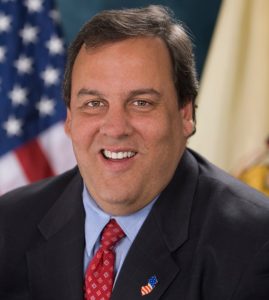 The Gov. Christie administration has filed a formal request with the U.S. Department of Commerce to stop restrictions on recreational summer flounder fishing from going into effect. The department oversees fisheries management under the auspices of the National Oceanic and Atmospheric Administration. The proposed NOAA quota calls for a reduction of summer flounder recreational and commercial limits by 30% in 2017 and 16% in 2018. In a news release, Department of Environmental Protection Commissioner Bob Martin said the limits would have a devastating impact on the state. He added that the rules vary “too widely” yearly, causing uncertainty for fisheries managers and anglers. Also, according to Martin, the state has more than 30 years of fish trawl surveys that indicate a measurable increase in the summer flounder stock offshore. Read the story here 16:06
The Gov. Christie administration has filed a formal request with the U.S. Department of Commerce to stop restrictions on recreational summer flounder fishing from going into effect. The department oversees fisheries management under the auspices of the National Oceanic and Atmospheric Administration. The proposed NOAA quota calls for a reduction of summer flounder recreational and commercial limits by 30% in 2017 and 16% in 2018. In a news release, Department of Environmental Protection Commissioner Bob Martin said the limits would have a devastating impact on the state. He added that the rules vary “too widely” yearly, causing uncertainty for fisheries managers and anglers. Also, according to Martin, the state has more than 30 years of fish trawl surveys that indicate a measurable increase in the summer flounder stock offshore. Read the story here 16:06
Connecticut’s fishing fleet facing potentially ‘disastrous’ quota cuts for fluke
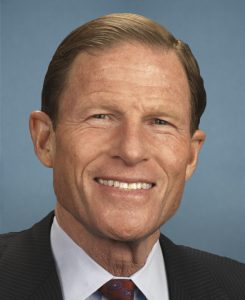 “It’s going to put us out of business,” Stonington fisherman Robert Guzzo, vice president of the Southern New England Fishermen and Lobstermen’s Association, said Wednesday. “I’ve never seen so many fish in the ocean. The fish are out there, but the science and the regulators haven’t caught up with what’s actually out there.” On Wednesday, U.S. Sen. Richard Blumenthal, D-Conn., pressed commerce secretary nominee Wilbur Ross to use his authority to change how quotas for fish species including fluke — also called summer flounder — are allocated among states from the mid-Atlantic to New England. In response, Ross said he is interested in helping the fisheries and ensuring quotas are allocated properly. The Department of Commerce includes the National Marine Fisheries Service. Blumenthal’s statements during the hearing came a day after he and U.S. Sen. Chris Murphy, D-Conn., and U.S. Rep. Joe Courtney, D-2nd District, sent a letter to the current commerce secretary urging that the new quotas be withdrawn. Read the story here 10:30
“It’s going to put us out of business,” Stonington fisherman Robert Guzzo, vice president of the Southern New England Fishermen and Lobstermen’s Association, said Wednesday. “I’ve never seen so many fish in the ocean. The fish are out there, but the science and the regulators haven’t caught up with what’s actually out there.” On Wednesday, U.S. Sen. Richard Blumenthal, D-Conn., pressed commerce secretary nominee Wilbur Ross to use his authority to change how quotas for fish species including fluke — also called summer flounder — are allocated among states from the mid-Atlantic to New England. In response, Ross said he is interested in helping the fisheries and ensuring quotas are allocated properly. The Department of Commerce includes the National Marine Fisheries Service. Blumenthal’s statements during the hearing came a day after he and U.S. Sen. Chris Murphy, D-Conn., and U.S. Rep. Joe Courtney, D-2nd District, sent a letter to the current commerce secretary urging that the new quotas be withdrawn. Read the story here 10:30
California Commercial crabbers still hope for relief from previous season
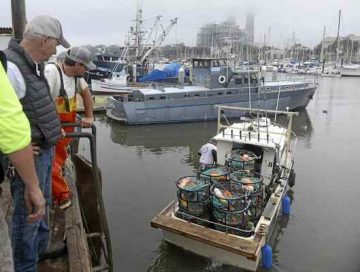 Commercial crab fishing opens Tuesday, but fishermen are still reeling from last year’s abysmal season and haven’t seen any sign of the hoped-for federal emergency funds Gov. Jerry Brown requested from the Department of Commerce. In February, Brown wrote a letter to Secretary of Commerce Penny Pritzker, asking her to declare a fishery resource disaster. He sought federal help in offsetting the $48.3 million loss to the industry after crab fishing was put on hold due to toxin contamination. Dungeness crab is one of the highest valued commercial fisheries in California,” he wrote. “Declaring a commercial failure will enable the fishing communities affected by the closure to receive essential economic assistance.” “We’re all far behind,” said Vicki Crow, a crab vendor at Moss Landing Harbor. Crow, 60, has been in the fishing industry most of her adult life, starting at around age 20 with commercial abalone and sea urchin diving. Now she sells crab from a dock at the harbor. “It’s just been really bad for us,” she said. Read the story here 08:24
Commercial crab fishing opens Tuesday, but fishermen are still reeling from last year’s abysmal season and haven’t seen any sign of the hoped-for federal emergency funds Gov. Jerry Brown requested from the Department of Commerce. In February, Brown wrote a letter to Secretary of Commerce Penny Pritzker, asking her to declare a fishery resource disaster. He sought federal help in offsetting the $48.3 million loss to the industry after crab fishing was put on hold due to toxin contamination. Dungeness crab is one of the highest valued commercial fisheries in California,” he wrote. “Declaring a commercial failure will enable the fishing communities affected by the closure to receive essential economic assistance.” “We’re all far behind,” said Vicki Crow, a crab vendor at Moss Landing Harbor. Crow, 60, has been in the fishing industry most of her adult life, starting at around age 20 with commercial abalone and sea urchin diving. Now she sells crab from a dock at the harbor. “It’s just been really bad for us,” she said. Read the story here 08:24
Connecticut lawmakers call on inspector general to investigate fishing regulations
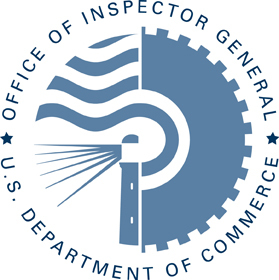 U.S. Sens. Richard Blumenthal and Chris Murphy, both D-Conn., along with U.S. Rep. Joe Courtney, D-Second District, on Tuesday called on the inspector general of the Department of Commerce to investigate what they call an inequity in regulations that puts New England fishermen at a disadvantage. “We write to raise a growing concern of our constituents in the fishing industry who are facing extreme economic hardship related to the structure of fisheries management across the Northeast and mid-Atlantic,” wrote Blumenthal, Murphy and Courtney. “On several occasions during town halls and meetings in Connecticut with many of the fishermen who operate in the state, we have repeatedly heard concerns that black sea bass, summer flounder, and scup have migrated northward, but the state-by-state allocations for these species still reflect historical numbers when they were in greater abundance in the mid-Atlantic,” the lawmakers wrote. Read the rest here 18:53
U.S. Sens. Richard Blumenthal and Chris Murphy, both D-Conn., along with U.S. Rep. Joe Courtney, D-Second District, on Tuesday called on the inspector general of the Department of Commerce to investigate what they call an inequity in regulations that puts New England fishermen at a disadvantage. “We write to raise a growing concern of our constituents in the fishing industry who are facing extreme economic hardship related to the structure of fisheries management across the Northeast and mid-Atlantic,” wrote Blumenthal, Murphy and Courtney. “On several occasions during town halls and meetings in Connecticut with many of the fishermen who operate in the state, we have repeatedly heard concerns that black sea bass, summer flounder, and scup have migrated northward, but the state-by-state allocations for these species still reflect historical numbers when they were in greater abundance in the mid-Atlantic,” the lawmakers wrote. Read the rest here 18:53
NOAA At-sea monitoring suspended (for now) – To start again March 1, when boats must pay costs
 NOAA Fisheries exhausted its budgeted money for at-sea monitoring of Northeast fishing sector groundfish boats on Feb. 16 and has suspended all required monitoring until the fishing industry assumes monitoring costs on March 1. The details of the suspension, which has not been publicly announced by NOAA, were contained in a Feb. 19 declaration filed by NOAA Regional Administrator John K. Bullard in the federal lawsuit New Hampshire fisherman David Goethel of Hampton filed against the National Oceanic and Atmospheric Administration, the Department of Commerce and officials within those federal agencies. “On or about Feb. 16, the (Northeast Fisheries) Science Center became aware for the first time that recent updates did not include information for all completed trips … and that committed government funds to pay for ASMs had been exhausted,” Bullard wrote in his declaration. Read the rest here 08:06
NOAA Fisheries exhausted its budgeted money for at-sea monitoring of Northeast fishing sector groundfish boats on Feb. 16 and has suspended all required monitoring until the fishing industry assumes monitoring costs on March 1. The details of the suspension, which has not been publicly announced by NOAA, were contained in a Feb. 19 declaration filed by NOAA Regional Administrator John K. Bullard in the federal lawsuit New Hampshire fisherman David Goethel of Hampton filed against the National Oceanic and Atmospheric Administration, the Department of Commerce and officials within those federal agencies. “On or about Feb. 16, the (Northeast Fisheries) Science Center became aware for the first time that recent updates did not include information for all completed trips … and that committed government funds to pay for ASMs had been exhausted,” Bullard wrote in his declaration. Read the rest here 08:06
NOAA urged to expedite decision to allow the American Samoa purse seiner fleet to fish in the high seas.
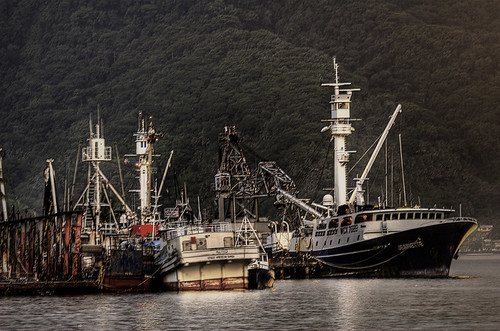 Tri Marine International’s CEO, Mr. Renato Curto and Chief Operating Officer, Mr. Joe Hamby visited senior NOAA and Department of Commerce officials in Washington, D.C. this week urging them to expedite their decision on the petition to allow the American Samoa purse seiner fleet to fish in the high seas. NOAA’s public comment period on the petition ended on August 17th.Over 100 comments were received, only four of which were against the petition. Heidi Happonen, spokesperson for Tri Marine said with such broad support for restoring access to the high seas,,, Read the rest here 12:52
Tri Marine International’s CEO, Mr. Renato Curto and Chief Operating Officer, Mr. Joe Hamby visited senior NOAA and Department of Commerce officials in Washington, D.C. this week urging them to expedite their decision on the petition to allow the American Samoa purse seiner fleet to fish in the high seas. NOAA’s public comment period on the petition ended on August 17th.Over 100 comments were received, only four of which were against the petition. Heidi Happonen, spokesperson for Tri Marine said with such broad support for restoring access to the high seas,,, Read the rest here 12:52
NMFS issues overfishing notice for 4 northwest salmon stocks, and North Pacific swordfish
 The federal agency in charge of managing fisheries has ruled four stocks of Pacific Northwest salmon are being overfished. The National Marine Fisheries Service and the Department of Commerce on Wednesday posted a notice in the Federal Register of the excessive fishing pressures on Chinook and Coho salmon in the Columbia River Basin and along the Washington coast. The notice, which included overfishing findings for , is meant to alert fishery managers that fishing pressures are driving salmon populations down. Read the rest here 09:10
The federal agency in charge of managing fisheries has ruled four stocks of Pacific Northwest salmon are being overfished. The National Marine Fisheries Service and the Department of Commerce on Wednesday posted a notice in the Federal Register of the excessive fishing pressures on Chinook and Coho salmon in the Columbia River Basin and along the Washington coast. The notice, which included overfishing findings for , is meant to alert fishery managers that fishing pressures are driving salmon populations down. Read the rest here 09:10
There’s something fishy about the Department of Commerce’s denial of Alan Stein’s FOIA requests
 He claims that the Commerce Department and two of its agencies – the National Oceanic and Atmospheric Administration and its Office of the Inspector General – stonewalled his requests about an investigation that sent a former fisheries official to jail. Arne Fuglvog served on the NPFMC, which oversees assignment of fishing quotas in Alaska, from 2003 to 2006, and on an advisory council to the NPFMC before that. Then he went to work as an aide for Alaska Senator Lisa Murkowski. He played a large role in moving federal fishery management from purely conservation toward privatization of the resource which has in some areas of the country (and would have in others) sharply reduced the number of fishing vessels and canneries.” Read the rest here 07:24
He claims that the Commerce Department and two of its agencies – the National Oceanic and Atmospheric Administration and its Office of the Inspector General – stonewalled his requests about an investigation that sent a former fisheries official to jail. Arne Fuglvog served on the NPFMC, which oversees assignment of fishing quotas in Alaska, from 2003 to 2006, and on an advisory council to the NPFMC before that. Then he went to work as an aide for Alaska Senator Lisa Murkowski. He played a large role in moving federal fishery management from purely conservation toward privatization of the resource which has in some areas of the country (and would have in others) sharply reduced the number of fishing vessels and canneries.” Read the rest here 07:24
House votes to slash climate research, block new red snapper fishing plan, and ‘ocean zoning’ funding
 The $51.4 billion spending bill would fund the fiscal 2016 budgets for the Department of Commerce, the Department of Justice, NASA, the National Science Foundation and related agencies. NOAA — which is housed within Commerce — would get about $5.2 billion, a cut of more than $270 million to its current budget. The Obama administration criticized the climate research cut — as well as a $200 million cut to earth science missions in NASA’s budget — in a veto threat of the overall spending bill released Monday. The statement of administration policy also takes aim at Republicans’ decision not to include $147 million for a new ocean survey vessel,,, Read the rest here 17:41
The $51.4 billion spending bill would fund the fiscal 2016 budgets for the Department of Commerce, the Department of Justice, NASA, the National Science Foundation and related agencies. NOAA — which is housed within Commerce — would get about $5.2 billion, a cut of more than $270 million to its current budget. The Obama administration criticized the climate research cut — as well as a $200 million cut to earth science missions in NASA’s budget — in a veto threat of the overall spending bill released Monday. The statement of administration policy also takes aim at Republicans’ decision not to include $147 million for a new ocean survey vessel,,, Read the rest here 17:41
Fish-farm madness – A US/Canadian Collaborative, The “Joint Forward Plan”
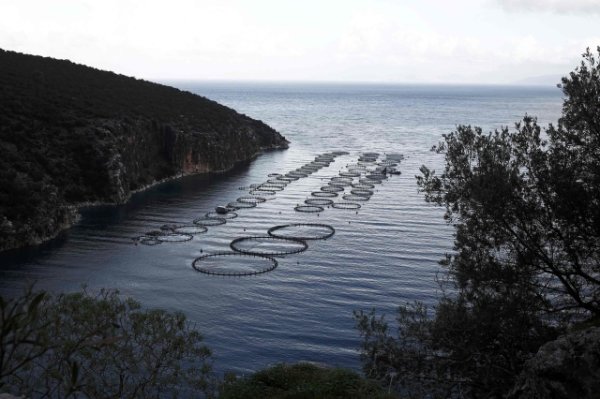
National Marine Fisheries Service violated law – Federal Ruling on Allocation Favors Gulf Commercial Red Snapper Fishermen
 Federal Ruling on Allocation Favors Gulf Commercial Red Snapper Fishermen A federal ruling has been handed down that the U.S. government violated the law by failing to properly manage the Gulf of Mexico Red Snapper fishery. Read more here 16:16
Federal Ruling on Allocation Favors Gulf Commercial Red Snapper Fishermen A federal ruling has been handed down that the U.S. government violated the law by failing to properly manage the Gulf of Mexico Red Snapper fishery. Read more here 16:16
ARDORs, hair crab limited entry revived –
 JUNEAU — The bill to resurrect the Alaska Regional Development Organization program and the now-unique vessel-based limited entry system for the currently closed Korean hair crab fishery is on its way to Gov. Sean Parnell after a House floor debate as strange as the measure’s weird path through the Legislature. Read more here 23:10
JUNEAU — The bill to resurrect the Alaska Regional Development Organization program and the now-unique vessel-based limited entry system for the currently closed Korean hair crab fishery is on its way to Gov. Sean Parnell after a House floor debate as strange as the measure’s weird path through the Legislature. Read more here 23:10
Editorial: Hail fishing aid when it reaches those who need it
![]() But you should excuse fishermen and even federal and state lawmakers if all this good news didn’t exactly touch off celebrations along the docks, and in the halls of government, where people like Congressman John Tierney called it simply “the next critical step in the process.” That’s because it’s also clear that this money — desperately needed by front-line fishermen months ago — is still weeks, and likely months from reaching them. Read more here 03:19
But you should excuse fishermen and even federal and state lawmakers if all this good news didn’t exactly touch off celebrations along the docks, and in the halls of government, where people like Congressman John Tierney called it simply “the next critical step in the process.” That’s because it’s also clear that this money — desperately needed by front-line fishermen months ago — is still weeks, and likely months from reaching them. Read more here 03:19
Sackton: NMFS, DOC to blame for 38% drop in New England haddock revenue since 2011,- (And their ecoevangelical ENGO’s masters are too!)
 We have been struck by the success of the recent Canadian winter haddock season. In January, in just a few ports in Nova Scotia, Canadian boats landed more than 2,000 metric tons of haddock (nearly 4.5 million pounds). The newspapers were filled with stories of overloaded harbors, full processing plants, and higher revenue based on great market prices.,,,Meanwhile, the fisheries disaster in New England keeps unfolding. According to a recent letter from the chair of the New England council to the head of the Department of Commerce (DOC), 2013 groundfish landings in New England will be around 43.4 million pounds, with revenue of only $55.8 million. This represents a 38% reduction in revenue since 2011. No wonder New England fishing businesses outside of the scallop industry are facing extinction. Read more@undercurrent 14:24
We have been struck by the success of the recent Canadian winter haddock season. In January, in just a few ports in Nova Scotia, Canadian boats landed more than 2,000 metric tons of haddock (nearly 4.5 million pounds). The newspapers were filled with stories of overloaded harbors, full processing plants, and higher revenue based on great market prices.,,,Meanwhile, the fisheries disaster in New England keeps unfolding. According to a recent letter from the chair of the New England council to the head of the Department of Commerce (DOC), 2013 groundfish landings in New England will be around 43.4 million pounds, with revenue of only $55.8 million. This represents a 38% reduction in revenue since 2011. No wonder New England fishing businesses outside of the scallop industry are facing extinction. Read more@undercurrent 14:24
The Devil in the Fishery Disaster Aid Details.- Mass. seen having leg up on fish aid
 Massachusetts Sen. Elizabeth Warren’s office confirmed yesterday that the process for developing the distribution formula remains a work in progress, but with the underlying principle that the funds — specifically designated as assistance to the groundfish disaster proclaimed by the Department of Commerce in 2012 — should go to areas where the most groundfish fishermen have suffered the greatest level of economic distress from the disaster.But Warren’s office also confirmed that federal disaster funds, no matter the type of disaster, usually come with a hefty price tag for the states that accept them — a state must provide an additional 25 percent of the total amount of disaster aid it accepts. Read more@gdt 02:28
Massachusetts Sen. Elizabeth Warren’s office confirmed yesterday that the process for developing the distribution formula remains a work in progress, but with the underlying principle that the funds — specifically designated as assistance to the groundfish disaster proclaimed by the Department of Commerce in 2012 — should go to areas where the most groundfish fishermen have suffered the greatest level of economic distress from the disaster.But Warren’s office also confirmed that federal disaster funds, no matter the type of disaster, usually come with a hefty price tag for the states that accept them — a state must provide an additional 25 percent of the total amount of disaster aid it accepts. Read more@gdt 02:28
Fishing aid gets Senate’s final OK – Editorial: Fishing aid still no long-term industry solution
![]() The vote by the Senate, which followed Wednesday’s overwhelming victory in the House, means the federal government now will provide its first meaningful financial assistance to fishermen since the Department of Commerce declared an economic disaster in the Northeast groundfish fishery and elsewhere in 2012. Read more@gdt 04:44
The vote by the Senate, which followed Wednesday’s overwhelming victory in the House, means the federal government now will provide its first meaningful financial assistance to fishermen since the Department of Commerce declared an economic disaster in the Northeast groundfish fishery and elsewhere in 2012. Read more@gdt 04:44
Editorial: The ironic aspect of this disaster aid approval is that, at the start, fishermen and related waterfront businesses never wanted or reached out for government handouts in the first place. Their hands were simply forced by lopsided, heavy-handed fishing limits and enforcement tactics that were cited as excessive by the Department of Commerce’s own Inspector General’s office beginning in 2009, yet still haven’t been adequately addressed by either NOAA or its parental Commerce leadership. Read more@gdt 04:44
Gloucesterman haunted by urge to go to sea, loss of vessel
 Joe Orlando still wakes up in the night, when the wind is whistling, and wonders if he should go down to the Gloucester House and make sure the Padre Pio’s lines are secure. There still are days when the longtime Gloucester fisherman, as if lured by something invisible and irresistible, finds himself heading toward the dock to check on his boat. “I say to myself, ‘What am I doing’?” Orlando said. He is doing what he’s done for the past 30 years, what he’s done since he bought the 65-foot steel fishing boat in 1983 in partnership with his sister Angela Sanfilippo and her husband John. There’s only problem: Orlando no longer owns the Padre Pio. more@gdt 01:58
Joe Orlando still wakes up in the night, when the wind is whistling, and wonders if he should go down to the Gloucester House and make sure the Padre Pio’s lines are secure. There still are days when the longtime Gloucester fisherman, as if lured by something invisible and irresistible, finds himself heading toward the dock to check on his boat. “I say to myself, ‘What am I doing’?” Orlando said. He is doing what he’s done for the past 30 years, what he’s done since he bought the 65-foot steel fishing boat in 1983 in partnership with his sister Angela Sanfilippo and her husband John. There’s only problem: Orlando no longer owns the Padre Pio. more@gdt 01:58
Murkowski, Young, Hastings, Press Pritzker – “We urge you to use your authority consistent with the Antideficiency Act to responsibly manage the 2013 Bering Sea and Aleutian Islands crab fisheries.
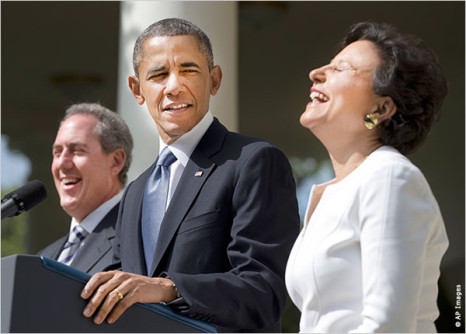 The Bristol Bay red king crab fishery in Alaska is scheduled to open next Tuesday, October 15th, but before crab fishing boats are allowed to fish, they must be issued quota permits by the National Marine Fisheries Service (NMFS) – which the Department of Commerce has shuttered for issuing permits until the government is funded. [email protected] 09:27
The Bristol Bay red king crab fishery in Alaska is scheduled to open next Tuesday, October 15th, but before crab fishing boats are allowed to fish, they must be issued quota permits by the National Marine Fisheries Service (NMFS) – which the Department of Commerce has shuttered for issuing permits until the government is funded. [email protected] 09:27
GDT Editorial: Warren right to note need for fishing aid beyond ‘loans’
![]() While our federal lawmakers join the push for offering federal Small Business Administrations loans to Gloucester’s and other fishermen (see news story, Page 1), it’s encouraging to hear U.S. Sen. Elizabeth Warren also concede that any such package would be merely be a positive first step toward the type of relief fishermen need. more@GDT 13:44
While our federal lawmakers join the push for offering federal Small Business Administrations loans to Gloucester’s and other fishermen (see news story, Page 1), it’s encouraging to hear U.S. Sen. Elizabeth Warren also concede that any such package would be merely be a positive first step toward the type of relief fishermen need. more@GDT 13:44
Department of Commerce open to bids for fishing aid fiscal 2013 Saltonstall-Kennedy grants – Some called this fish aid!
![]() Commercial fishermen interested in potential financial assistance from a trio of federal grant programs should keep two upcoming dates in mind. On Sept. 29, the application period will close for fiscal 2013 Saltonstall-Kennedy grants, a national competitive program launched earlier this summer by the Department of Commerce to provide grants for fisheries research and other development project related to U.S. fisheries. more@GDT Details @public notices 02:50
Commercial fishermen interested in potential financial assistance from a trio of federal grant programs should keep two upcoming dates in mind. On Sept. 29, the application period will close for fiscal 2013 Saltonstall-Kennedy grants, a national competitive program launched earlier this summer by the Department of Commerce to provide grants for fisheries research and other development project related to U.S. fisheries. more@GDT Details @public notices 02:50
Fed panel backs $150M in fishing aid – U.S. Senate Appropriations Committee also OKs research mandates for NOAA
![]() The U.S. Senate Appropriations Committee has included $150 million for fisheries disasters in its fiscal 2014 budget proposal for the Department of Commerce, Justice, Science and related agencies.And the budget measure includes a number of other directives aimed at the National Oceanic and Atmospheric Administration, including a proposed requirement that NOAA charter private and commercial fishing boats to carry out cooperative research with an eye toward addressing a long standing gulf between NOAA and the industry regarding credible fisheries science. continued@GDT
The U.S. Senate Appropriations Committee has included $150 million for fisheries disasters in its fiscal 2014 budget proposal for the Department of Commerce, Justice, Science and related agencies.And the budget measure includes a number of other directives aimed at the National Oceanic and Atmospheric Administration, including a proposed requirement that NOAA charter private and commercial fishing boats to carry out cooperative research with an eye toward addressing a long standing gulf between NOAA and the industry regarding credible fisheries science. continued@GDT
Massachusetts State Attorney General Martha Coakley has filed suit against NOAA – Go Martha!
BOSTON — State Attorney General Martha Coakley has filed suit against the federal National Oceanic and Atmospheric Administration, charging that NOAA wrongly failed to consider the “devastating economic impact” on fishing commun![]() ities when it set crippling new catch limits on Gloucester and other Massachusetts fishermen. continued
ities when it set crippling new catch limits on Gloucester and other Massachusetts fishermen. continued
Editorial: Fish panels’ united Magnuson stand sends powerful message
![]() The relatively rare, unified stand by all eight U.S. fishery management councils calling for more flexibility within the Magnuson-Stevens Act may not make a whit’s bit of difference for fishermen and waterfront businesses in Gloucester and elsewhere. continued
The relatively rare, unified stand by all eight U.S. fishery management councils calling for more flexibility within the Magnuson-Stevens Act may not make a whit’s bit of difference for fishermen and waterfront businesses in Gloucester and elsewhere. continued
Editorial: Don’t forsake present in pressing for fishery’s dire needs – Gloucester Daily Times
![]() The simple fact is that NOAA officials — right to the top and credibility-flawed General Counsel Lois Schiffer, while both NOAA and the Department of Commerce embarrassingly flounder without even acting chief administrators — have adopted the mantra of the agency’s bullying agents who, according to documentation, told workers at the former Gloucester Seafood Auction during an unauthorized, 2005 after-hours raid, that they were, in fact, “accountable to no one.” And all the municipal and state ideas in the world will be hard-pressed to break through that mentality until congressional lawmakers stand up and use NOAA and Commerce budgetary cuts and other actions to break up or into the agency itself. continued
The simple fact is that NOAA officials — right to the top and credibility-flawed General Counsel Lois Schiffer, while both NOAA and the Department of Commerce embarrassingly flounder without even acting chief administrators — have adopted the mantra of the agency’s bullying agents who, according to documentation, told workers at the former Gloucester Seafood Auction during an unauthorized, 2005 after-hours raid, that they were, in fact, “accountable to no one.” And all the municipal and state ideas in the world will be hard-pressed to break through that mentality until congressional lawmakers stand up and use NOAA and Commerce budgetary cuts and other actions to break up or into the agency itself. continued
Editorial: NOAA stand flaunts rogue agency’s lack of accountability – Gloucester Daily Times
Indeed, the most downright offensive aspect of NOAA’s stand amid all of this is the fact that Bullard and Schiffer refuse to release her “legal memorandum” purportedly saying the agency has no choice. And not far behind rests the downr![]() ight insulting tone taken by the Department of Commerce and the rest of the fishery job-killing Obama administration by recognizing the Northeast fishery as the “economic disaster” it is — the economic disaster they’ve created — without extending a single red cent in aid to fix it. continued
ight insulting tone taken by the Department of Commerce and the rest of the fishery job-killing Obama administration by recognizing the Northeast fishery as the “economic disaster” it is — the economic disaster they’ve created — without extending a single red cent in aid to fix it. continued
New England 2013 Final Rules for Framework 50, Framework 48 and Interim Final Rule for Sector Operations Plans
Today, NOAA Fisheries announced the final management measures for the Northeast Groundfish Fishery for 2013.
GLOUCESTER, Mass. — April 30, 2013 — Based largely on advice from the New England Fisheries Management Council, NOAA Fisheries announced today final management measures for the Northeast groundfish f ishery, including much lower quotas for some key groundfish stocks, and actions that will help fishermen better manage and adjust to these quotas. In anticipation of these cuts, the Department of Commerce pre-emptively declared a fishery disaster in the fall of 2012 and continues to work with Congress to help mitigate impacts to the region and maintain the long-standing culture of fishing in these communities. continued
ishery, including much lower quotas for some key groundfish stocks, and actions that will help fishermen better manage and adjust to these quotas. In anticipation of these cuts, the Department of Commerce pre-emptively declared a fishery disaster in the fall of 2012 and continues to work with Congress to help mitigate impacts to the region and maintain the long-standing culture of fishing in these communities. continued


































